I am fortunate that being a teacher in China allows me spare time, whilst earning money, to also explore the country. We work weekends, so have the start of the week off, which isn’t as bad as it may sound.
The weekends are usually extremely busy, with children off from school, parent’s home, and everyone rushing around trying to cram as much as they can into their weekends. This isn’t the case come Monday, so it is easier to be able to get to places, without the huge crowds.
Where would you go?
The question people should ask is ‘where wouldn’t you go?’. I haven’t travelled this far to stay in my small little sphere of work and home, and the occasional bar or restaurant. There is so much to see and so much to do in China, but always so little time. There is Beijing, Shanghai, Xian, Chengdu, Hong Kong, Lijiang, and so many other major attractions and places to go, but there are also the other smaller, unknown places to see and explore, that are right on your doorstep.
In Fuzhou there is so much to see and do, and it is so well connected to other towns and cities, that you don’t just have to explore Fuzhou on your two days off. Disregarding what the Lonely Planet has to say about Fuzhou, you have so many Temples, Gardens, Mountains, Museums, Zoo’s and parks to explore, that there doesn’t seem like there is enough time to fit it all in. However, you can see some of the places in a morning before work, so I normally use my weekends for bigger adventures.
Xiamen is a few hours train ride away, and so cheap to get to. There is a lot to do in Xiamen, and it is a huge tourist spot. There are several cities around Fuzhou that can be explored, as well as beaches to see. This is after all a harbour town, and near the coast. It would almost be rude not to go and explore some of the beaches.
Transport
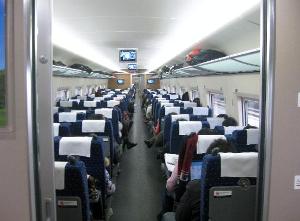 Getting around on the trains and buses isn’t that hard either. The trains name the place that they go to in pinyin as well as Chinese characters, so it is easy to see which train you should get. Failing that, there are several internet sites that will provide you with a train timetable for the city in English, and translate it to Chinese for you. So make a copy of the Chinese name, the time it departs, and the date, take it to the booth, and they will understand.
Getting around on the trains and buses isn’t that hard either. The trains name the place that they go to in pinyin as well as Chinese characters, so it is easy to see which train you should get. Failing that, there are several internet sites that will provide you with a train timetable for the city in English, and translate it to Chinese for you. So make a copy of the Chinese name, the time it departs, and the date, take it to the booth, and they will understand.
You do need a copy of your passport to travel, as we do not have an ID card. However a copy does suffice, so you don’t even have to panic that you will be unable to leave China should you lose your passport whilst on a train.
Now when I think of a train, I conjure up the image of the trains from home. Slow, smelly, with seats in the retro blue and red, that literally came out of the 80’s. However, this isn’t the case here. The seats are comfortable, with a lot of space. The carriage is cleaned continually, by cleaned I do mean a broom moved up and down the aisles, but that is more than back home, and it is mercifully air conditioned. England could learn a thing or two about rail transport from China. Not only is it clean and comfortable, it is cheap, quick, and has announcements in English too. Even the easily lost like me can manage. The only problem I have had is me being late, getting confused in the station and missing my train, because unlike England, the trains here are extremely punctual!
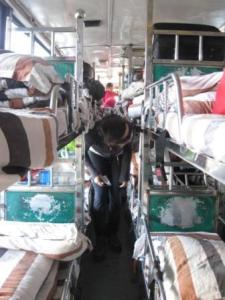 The trains aren’t the only method of getting around either. In China there is the overnight and long distance buses. Now, this concept is a novel one to me. I don’t think we have overnight anything in England. But using this mode of travel you don’t waste any time. You are travelling whilst you are sleeping. So you go to bed in one place, and wake up in another!
The trains aren’t the only method of getting around either. In China there is the overnight and long distance buses. Now, this concept is a novel one to me. I don’t think we have overnight anything in England. But using this mode of travel you don’t waste any time. You are travelling whilst you are sleeping. So you go to bed in one place, and wake up in another!
I travelled to Hong Kong via the overnight bus. This is one experience I shall never forget. I had with me my weekend back pack, which was pretty average. I waited in line with my roommate who was going at the same time as me. We went to get onto the bus, and were stopped. We had to take off our shoes. This is pretty standard in Chinese homes, so why not on an overnight bus. Stepping onto the bus I was instantly reminded of Harry Potter and the knight Bus. It was amazing. Even the driving was reminiscent of the movie!
Places around Fuzhou
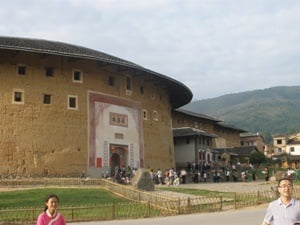 Using the train network I have been able to explore different surrounding towns, such as Xiamen and Putian (Meizhou Island), Pingtan, Quanzhou, Chongwu and several others.
Using the train network I have been able to explore different surrounding towns, such as Xiamen and Putian (Meizhou Island), Pingtan, Quanzhou, Chongwu and several others.
I have also explored Yongding since arriving in China. You don’t always want to go to the tourist attractions, where the real China is submerged beneath a layer of trinkets, and tourist souvenirs. Here China’s history surrounds and engulfs you. You see different tribe houses, the round houses, Hakka Houses and the Tolou houses. How they are built, and also how they are lived in, as they are still inhabited today by different tribes. You are able to go round, and get a sense of what life would be like. How different it is from how we live, the different values, the social roles, the needs.
Perks of the job
I can definitely say that living in a different country, and teaching English definitely has several job perks, but for me, being able to travel and explore the country that I am now living and working in, is definitely one of the biggest perks, one which can’t be beaten at home!

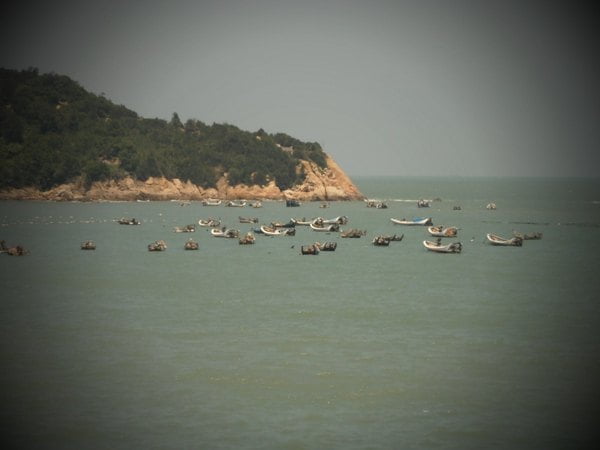



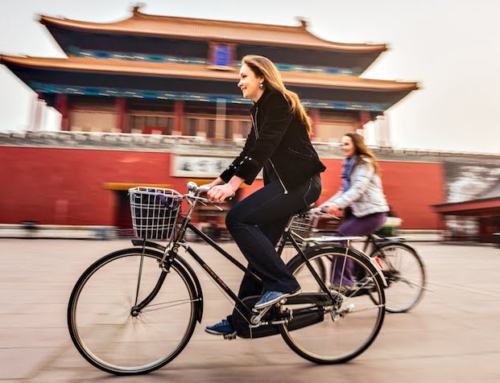
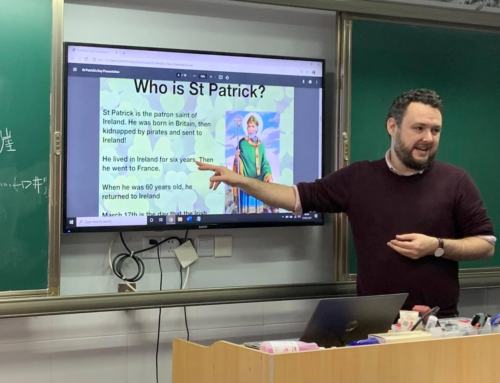










Leave A Comment